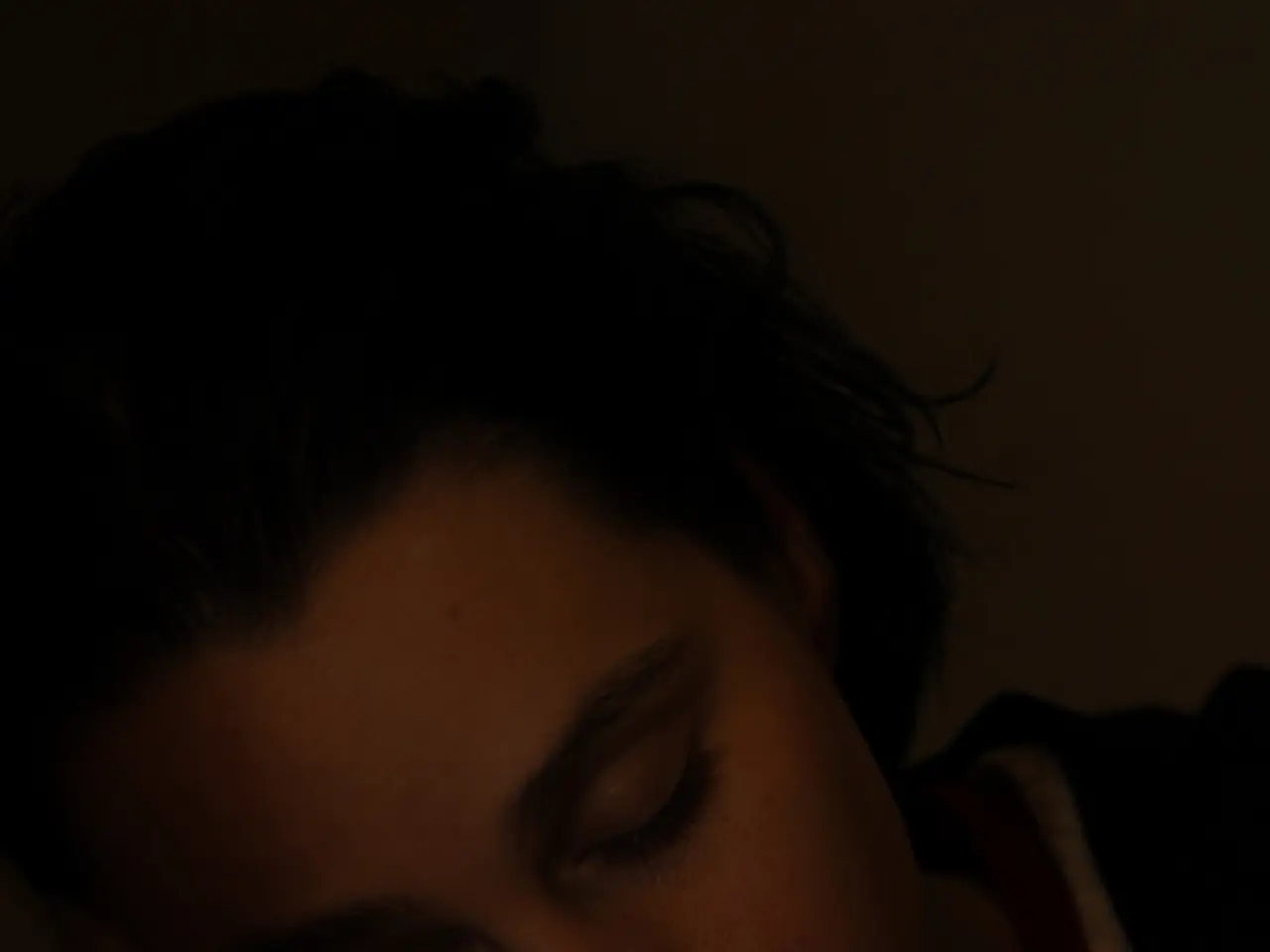Managing Troublesome Insomnia and Anxiety: Personal Lifestyle Changes for Health and Tranquility
In a world where stress and anxiety are becoming increasingly common, understanding how to manage these conditions is essential. One of the most impactful areas where stress and anxiety can manifest is in sleep patterns, leading to insomnia. Here's a guide to effective lifestyle changes that can help manage anxiety and insomnia symptoms.
Establishing a Consistent Sleep Schedule
Maintaining a consistent sleep schedule is crucial in regulating the body's internal clock and promoting better sleep. Going to bed and waking up at the same time every day can significantly improve sleep quality [1][2].
Creating a Relaxing Bedtime Routine
A relaxing bedtime routine can signal to the body when it's time to unwind. Activities such as reading, taking a warm bath, practicing deep breathing, meditation, guided imagery, or progressive muscle relaxation can help prepare the body for sleep [1][4].
Limiting Exposure to Screens and Electronic Devices
Avoiding the use of displays, such as computers, tablets, and cellphones, right before bed can prevent disruption of the body's normal circadian rhythm. The blue light emitted by these devices can interfere with melatonin production, a hormone essential for sleep regulation [1][2][5].
Optimizing the Sleep Environment
Keeping the bedroom cool, dark, and quiet can create a conducive sleeping environment. Using blackout curtains, earplugs, or white noise machines can reduce disruptive stimuli [1][5]. Investing in a supportive mattress and pillows can further promote sound sleep.
Engaging in Regular Physical Activity
Regular physical activity, particularly moderate aerobic exercise like walking, jogging, or cycling for 30 minutes most days, can reduce stress, improve mood, and enhance sleep quality [1][3][4][5]. However, it's important to avoid vigorous exercise close to bedtime, as it can be stimulating.
Managing Diet
Avoiding caffeine and alcohol especially later in the day, and not eating large meals too close to bedtime, can help prevent digestion issues that interfere with sleep [2][3].
Incorporating Relaxation Techniques
Practicing relaxation techniques like journaling with a focus on gratitude, deep breathing, progressive muscle relaxation, or mindfulness meditation can help relieve tension and encourage relaxation, thereby improving sleep quality [4].
Using Aromatherapy and Natural Remedies
Using aromatherapy and other natural remedies may also support relaxation and better sleep [2].
Identifying Patterns and Triggers
For some, keeping a sleep diary can help identify patterns or triggers that worsen insomnia and anxiety [5].
These lifestyle changes, emphasizing healthy sleep hygiene, physical activity, and stress reduction, form a foundational approach to better manage anxiety and insomnia symptoms without immediate reliance on medication [1][5]. However, if lifestyle changes aren't enough to control these conditions, seeking professional assistance is recommended. A medical expert or mental health specialist can evaluate symptoms and suggest the best course of action, which may involve counseling, medication, or both.
Sleep schedules play a significant role in managing anxiety and insomnia symptoms, as maintaining a consistent routine can regulate the body's internal clock and promote better sleep. On the other hand, excessive exposure to screens and electronic devices before bed can disrupt the body's normal circadian rhythm and interfere with melatonin production, affecting mental health and overall health-and-wellness.




